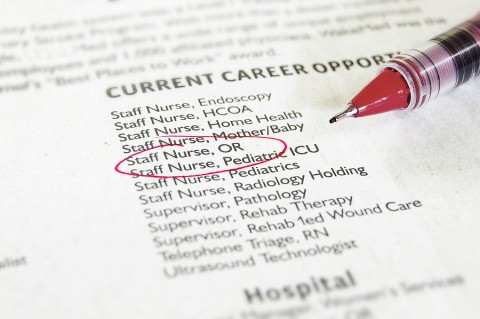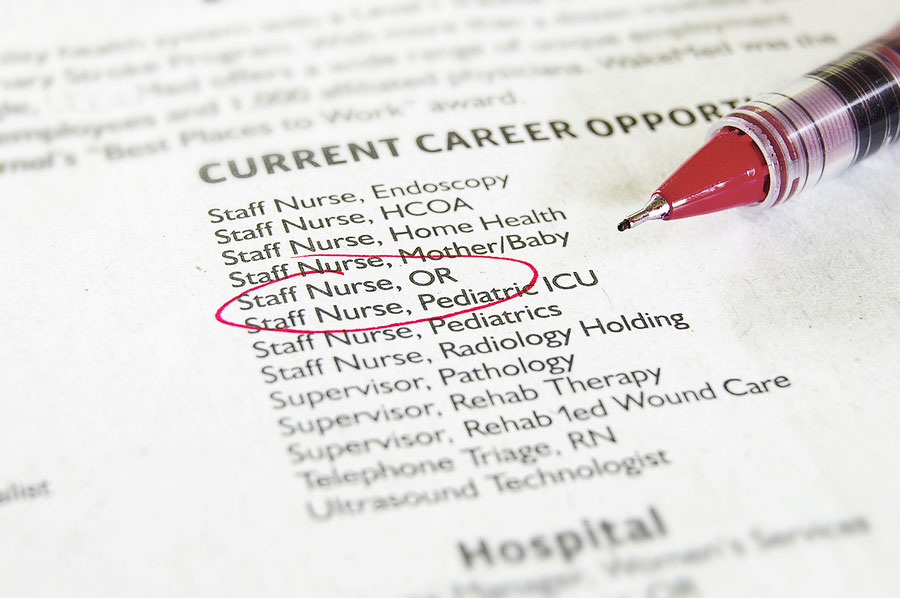 Survey results from the American Association of Colleges of Nursing (AACN) find that nurses with a bachelor’s degree (BSN) or master’s degree (MSN) are having an easier time finding work after graduation than graduates of other fields of study.
Survey results from the American Association of Colleges of Nursing (AACN) find that nurses with a bachelor’s degree (BSN) or master’s degree (MSN) are having an easier time finding work after graduation than graduates of other fields of study.
The AACN survey, published in November 2013, found that 59 percent of BSN graduates had already secured employment by graduation day, compared with the 29 percent national average across all disciplines.
Four to six months later, the number of BSN graduates who had found jobs jumped to 89 percent.
“Despite concerns about new college graduates finding employment in today’s tight job market, graduates of baccalaureate nursing programs are finding positions at a significantly higher rate than the national average,” said AACN President Jane Kirschling, in a press release. “As more practice settings move to require higher levels of education for their registered nurses, we expect the demand for BSN-prepared nurses to remain strong as nurse employers seek to raise quality standards and meet consumer expectations for safe patient care.”
Nurses with MSN degrees also found career success with 67 percent of graduates already hired by graduation day and 90 percent finding jobs within four to six months.
Encouraging nurses to pursue higher education is a topic that has been gaining momentum for years. The 2010 report, “The Future of Nursing: Leading Change, Advancing Health” by The Robert Wood Johnson Foundation recommended working to increase the number of nurses with a BSN degree to 80 percent by 2020.
Many hospitals and healthcare organizations have already started the transition, with some requiring current nurses to go back to school and get a bachelor’s degree within the next ten years.
Saint Peter’s University Hospital in New Brunswick, N.J. is one of the facilities that have notified all on-staff nurses with only a two-year degree that they have to go back and earn a BSN within the next decade in order to remain employed.
“As BSN rates go up, patient outcomes improve,” said Cheryl Saffer, coordinator of clinical education and nursing research at St. Peter’s told NJ.com.
Universities across the country are doing their part to help working nurses incorporate school into their busy schedules through online programs, flexible scheduling and sometimes even having classes at hospitals so nurses can attend between shifts.









